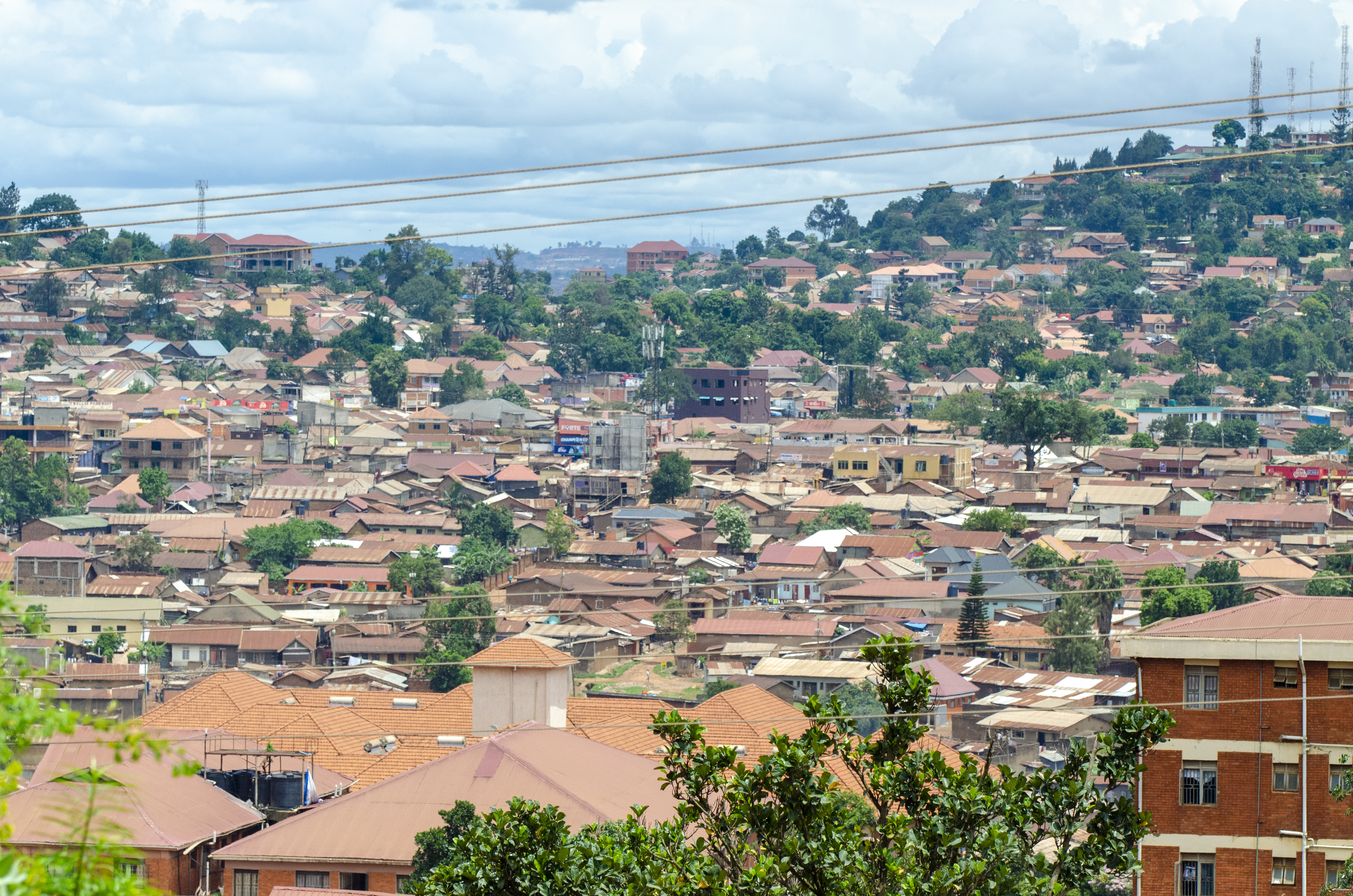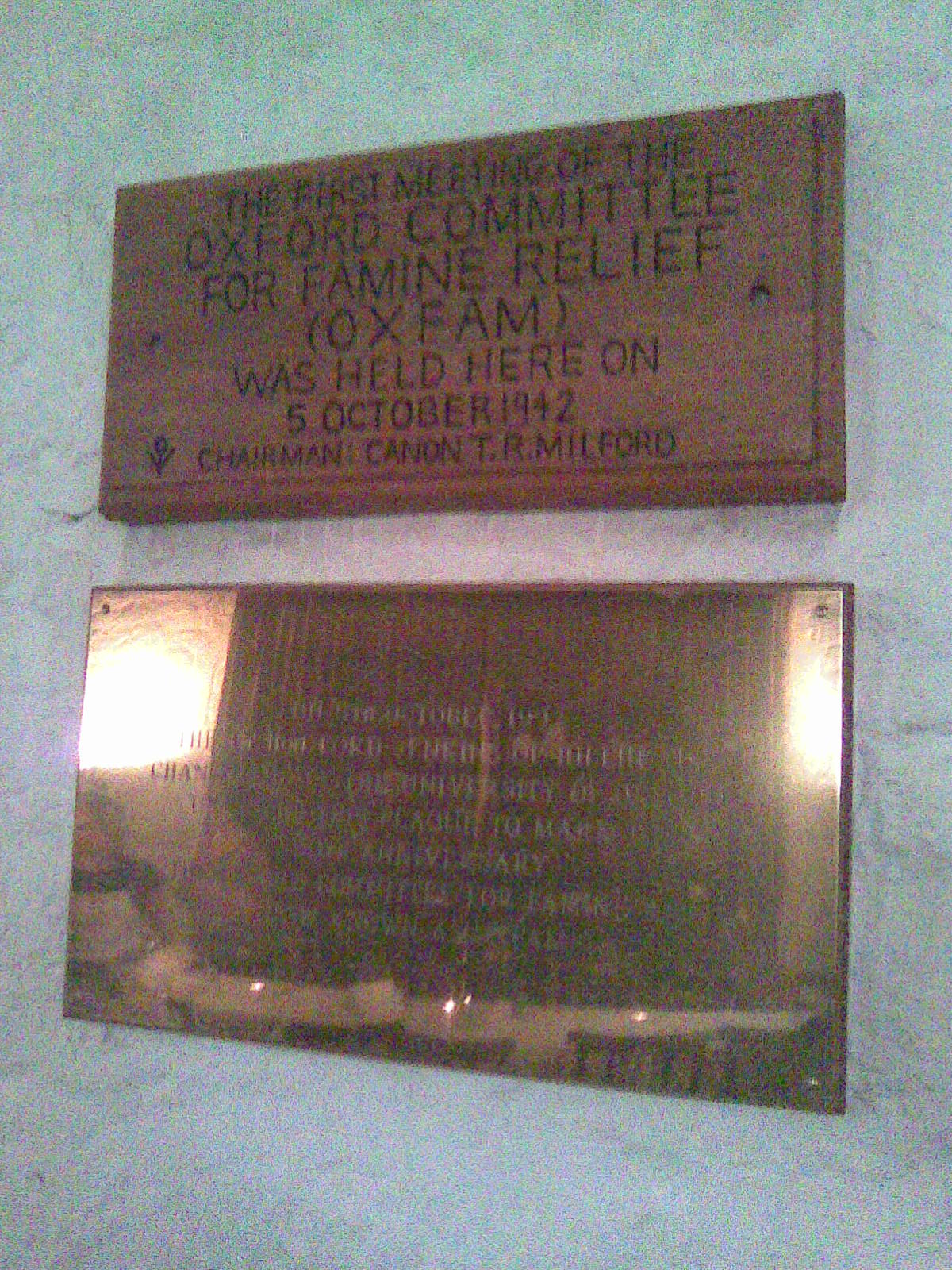|
Hilda Tadria
Hilda M. Tadria is a Ugandan women's rights activist, a gender and social development specialist, and the executive director of the Mentoring and Empowerment Programme for Young Women in Uganda (MEMPROW). She has advised NGOs worldwide on gender, institutional management and social development, and has been an associate professor at Makerere University. Early life Tadria has a bachelor's degree in sociology from Makerere University, a master's degree in social anthropology from Newnham College, Cambridge, England, and a PhD in social anthropology from the University of Minnesota, US. Career Tadria has worked as a consultant on gender, institutional management and social development for the World Bank, UNDP, UNIFEM, the Ugandan government, the Canadian International Development Agency (CIDA) and NOVIB. Tadria was an associate professor in the Department of Sociology at Makerere University, and while there founded the non-governmental organisation (NGO), Action for Development (ACF ... [...More Info...] [...Related Items...] OR: [Wikipedia] [Google] [Baidu] |
Hilda M
Hilda is one of several female given names derived from the name ''Hild'', formed from Old Norse , meaning 'battle'. Hildr, Hild, a Nordic-German Bellona (goddess), Bellona, was a Valkyrie who conveyed fallen warriors to Valhalla. Warfare was often called Hild's Game. The name became rare in England during the later Middle Ages, but was revived in the 19th century. In Sweden it has been in use since the late 18th century, being a popular name throughout the 19th century. Hilde (given name), Hilde is a variant of Hilda. Another variation on ''Hild'' is Hildur. Hilda is the name of: People * Hilda of Whitby (c. 614-680), English saint * Princess Hilda of Nassau (1864–1952) * Hilda Bernard (born 1920), Argentine stage, screen and television actress * Hilda Bernstein (1915–2006), author, artist, and anti-apartheid and women's rights activist * Hilda Borgström (1871–1954), Swedish actress * Hilda Braid (1929–2007), English actress * Hilda Mabel Canter (1922–2007), Englis ... [...More Info...] [...Related Items...] OR: [Wikipedia] [Google] [Baidu] |
University Of Minnesota College Of Liberal Arts Alumni
A university () is an institution of higher (or tertiary) education and research which awards academic degrees in several academic disciplines. Universities typically offer both undergraduate and postgraduate programs. In the United States, the designation is reserved for colleges that have a graduate school. The word ''university'' is derived from the Latin ''universitas magistrorum et scholarium'', which roughly means "community of teachers and scholars". The first universities were created in Europe by Catholic Church monks. The University of Bologna (''Università di Bologna''), founded in 1088, is the first university in the sense of: *Being a high degree-awarding institute. *Having independence from the ecclesiastic schools, although conducted by both clergy and non-clergy. *Using the word ''universitas'' (which was coined at its foundation). *Issuing secular and non-secular degrees: grammar, rhetoric, logic, theology, canon law, notarial law.Hunt Janin: "The university ... [...More Info...] [...Related Items...] OR: [Wikipedia] [Google] [Baidu] |
Makerere University Alumni
Makerere ( ) is a neighborhood in the city of Kampala, Uganda's capital city. The name also applies to the hill on which this neighborhood is perched; one of the original seven hills that constituted Kampala at the time of its founding, in the early 1900s. Location Makerere is located in Kawempe Division. It is bordered by Bwaise to the north, Mulago to the east, Wandegeya and Nakasero to the southeast, Old Kampala to the south, Naakulabye to the southwest. Kasubi and Kawaala lie to the west of Makerere. This location lies approximately , by road, north of Kampala's central business district. The coordinates of Makerere are:0° 20' 6.00"N, 32° 34' 12.00"E (Latitude:0.3350; Longitude:32.5700). Overview Makerere Hill is occupied primarily by Makerere University. In the 1970s and 1980s, the university had nine ''Halls of Residence'', six for men and three for women. During the 1990s and early 2000s, as the university intake and student population grew from about 5,000 to over 40,0 ... [...More Info...] [...Related Items...] OR: [Wikipedia] [Google] [Baidu] |
Alumni Of Newnham College, Cambridge
Alumni (singular: alumnus (masculine) or alumna (feminine)) are former students of a school, college, or university who have either attended or graduated in some fashion from the institution. The feminine plural alumnae is sometimes used for groups of women. The word is Latin and means "one who is being (or has been) nourished". The term is not synonymous with "graduate"; one can be an alumnus without graduating (Burt Reynolds, alumnus but not graduate of Florida State, is an example). The term is sometimes used to refer to a former employee or member of an organization, contributor, or inmate. Etymology The Latin noun ''alumnus'' means "foster son" or "pupil". It is derived from PIE ''*h₂el-'' (grow, nourish), and it is a variant of the Latin verb ''alere'' "to nourish".Merriam-Webster: alumnus .. Separate, but from the s ... [...More Info...] [...Related Items...] OR: [Wikipedia] [Google] [Baidu] |
Ugandan Feminists
}), is a landlocked country in East Africa. The country is bordered to the east by Kenya, to the north by South Sudan, to the west by the Democratic Republic of the Congo, to the south-west by Rwanda, and to the south by Tanzania. The southern part of the country includes a substantial portion of Lake Victoria, shared with Kenya and Tanzania. Uganda is in the African Great Lakes region. Uganda also lies within the Nile basin and has a varied but generally a modified equatorial climate. It has a population of around 49 million, of which 8.5 million live in the capital and largest city of Kampala. Uganda is named after the Buganda kingdom, which encompasses a large portion of the south of the country, including the capital Kampala and whose language Luganda is widely spoken throughout the country. From 1894, the area was ruled as a protectorate by the United Kingdom, which established administrative law across the territory. Uganda gained independence from the UK on 9 October 19 ... [...More Info...] [...Related Items...] OR: [Wikipedia] [Google] [Baidu] |
Living People
Related categories * :Year of birth missing (living people) / :Year of birth unknown * :Date of birth missing (living people) / :Date of birth unknown * :Place of birth missing (living people) / :Place of birth unknown * :Year of death missing / :Year of death unknown * :Date of death missing / :Date of death unknown * :Place of death missing / :Place of death unknown * :Missing middle or first names See also * :Dead people * :Template:L, which generates this category or death years, and birth year and sort keys. : {{DEFAULTSORT:Living people 21st-century people People by status ... [...More Info...] [...Related Items...] OR: [Wikipedia] [Google] [Baidu] |
Gender Studies And Human Rights Documentation Centre
The Gender Studies and Human Rights Documentation Centre (Gender Centre) is a non-profit, non-governmental organization that strives to address the issues of gender inequality in Ghana. Based in Accra, Ghana, the Gender Centre has conducted studies on issues ranging from sexual and psychological violence against school girls to the ways in which social norms lead women to have a higher risk of HIV infection than men. The centre works with local, national, and international organizations in its work towards addressing the problems facing women in Ghanaian society. The Gender Centre conducts research to provide both quantitative and qualitative data that will lead to new laws, fresh outlooks, and community discussions concerning women in this region of the world. Dorcas Coker-Appiah is the executive director of the Gender Centre. History The Gender Studies and Human Rights Documentation Centre was founded in 1995. Since that time it has conducted numerous studies and published ... [...More Info...] [...Related Items...] OR: [Wikipedia] [Google] [Baidu] |
Dorcas Coker-Appiah
Dorcas Ama Frema Coker-Appiah (born 17 August 1946) is a Ghanaian lawyer and women's rights activist, and the executive director of the Gender Studies and Human Rights Documentation Centre, also known as the "Gender Centre", in Accra, Ghana. She has had (and continues to have) important roles in several organisations promoting women's rights at national, regional and international levels. Early life Dorcas Ama Frema Coker-Appiah was born on 17 August 1946 in Wenchi, in the British colony of the Gold Coast (now Ghana). In 1970, Coker-Appiah earned a bachelor's degree in law from the University of Ghana. Career In 1974, Coker-Appiah was a founding member of FIDA Ghana, and served as vice president from 1988 to 1989, followed by president from 1990 to 1991. She has served as the president of FIDA's legal aid steering committee, and the project coordinator of the legal, literacy and publication committee for some years. Coker-Appiah is the executive director of the Gender Studies an ... [...More Info...] [...Related Items...] OR: [Wikipedia] [Google] [Baidu] |
Action For Development
Action for Development (ACFODE) is an indigenous (Ugandan) non government Women Association founded by women academicians; Dr Joy Kwesiga, Dr Hilda Tadria and Dr Ruth Mukama with the help of Maxine Ankra with the aim of incorporating ideas discussed during the United Nations World Conference on Women held in July 1985 in Nairobi, Kenya. Uganda had been denied entry into the conference because of the prevailing political climate at the time, thus the need to start an organization that would champion women issues without government interference. Activities ACFODE focuses on issues related to women empowerment in Uganda through research, capacity building, coalition building, mobilization, sensitization and advocacy for policy formulation. It also champions the women's cause and gender equality on the national Agenda and puts emphasis on ending sexual Gender based violence and discrimination in Uganda. ACFODE is also an advocate for good governance and democracy through monitori ... [...More Info...] [...Related Items...] OR: [Wikipedia] [Google] [Baidu] |
Mentoring And Empowerment Programme For Young Women In Uganda
Mentorship is the influence, guidance, or direction given by a mentor. A mentor is someone who teaches or gives help and advice to a less experienced and often younger person. In an organizational setting, a mentor influences the personal and professional growth of a mentee. Most traditional mentorships involve having senior employees mentor more junior employees, but mentors do not necessarily have to be more senior than the people they mentor. What matters is that mentors have experience that others can learn from. According to the Business Dictionary, a mentor is a senior or more experienced person who is assigned to function as an advisor, counsellor, or guide to a junior or trainee. The mentor is responsible for offering help and feedback to the person under their supervision. A mentor's role, according to this definition, is to use their experience to help a junior employee by supporting them in their work and career, providing comments on their work, and, most crucially, ... [...More Info...] [...Related Items...] OR: [Wikipedia] [Google] [Baidu] |
NOVIB
Oxfam is a British-founded confederation of 21 independent charitable organizations focusing on the alleviation of global poverty, founded in 1942 and led by Oxfam International. History Founded at 17 Broad Street, Oxford, as the Oxford Committee for Famine Relief by a group of Quakers, social activists, and Oxford academics in 1942 and registered in accordance with UK law in 1943, the original committee was a group of concerned citizens, including Henry Gillett (a prominent local Quaker), Theodore Richard Milford, Gilbert Murray and his wife Mary, Cecil Jackson-Cole, and Alan Pim. The committee met in the Old Library of University Church of St Mary the Virgin, Oxford, for the first time in 1942, and its aim was to help starving citizens of occupied Greece, a famine caused by the Axis occupation of Greece and Allied naval blockades and to persuade the British government to allow food relief through the blockade. The Oxford committee was one of several local committees ... [...More Info...] [...Related Items...] OR: [Wikipedia] [Google] [Baidu] |




